Vitamins
All information about "Vitamins" and the related magazine articles can be found here.
Our articles are written clearly and link to scientific studies where relevant. This is how we meet our own standards: we regularly deliver new, high-quality content for you—free of charge, no sign-up required, with the highest possible benefit to you.

Start spring naturally fit with L-citrulline & cordyceps and recharge your batteries
Experience the invigorating power of nature and science. For new energy, strong blood vessels and mental freshness. Ideal for anyone who wants to get off to a powerful start.
The days are getting longer, the light is returning and now is the time to give your body a gentle boost. The combination of L-citrulline, an amino acid that promotes blood circulation, and the vital mushroom cordyceps supports you in a natural way. For more performance, better focus and an all-round vital body feeling.

Moving through spring: supporting joints naturally with MSM, glucosamine and chondroitin
Find out how your joints work - and how targeted nutrients, exercise and high-quality supplements can promote your mobility.
Movement is often difficult after winter. Stiff joints and limited range of motion are not uncommon. Natural active ingredients such as MSM, glucosamine and chondroitin can help to support normal joint function and prevent discomfort. Now is the ideal time to get going with renewed energy. Moving, vital and well nourished into spring.

Vitamin D3 and K2: the perfect combination for bones and well-being
Find out why vitamin D3 and K2 are so important, especially in the dark season, and how they support your immune system and bone health.
Vitamin D3 helps to banish the winter blues, while vitamin K2 promotes the optimal utilization of calcium. Discover the best food sources and find out when targeted supplementation can be useful.

Stopping cravings: How chromium stabilizes your blood sugar levels
Find out why the trace element chromium can reduce cravings and how it supports your metabolism.
Chromium helps regulate blood sugar levels, helps prevent sudden hunger and promotes long-term wellbeing. Discover the benefits of this important nutrient and find out how you can specifically integrate it into your diet!

Thanks to bitter substances and enzymes, a naturally spring-fit and healthy digestion
Find out how bitter substances and enzymes stimulate your digestion, alleviate digestive problems and gently balance the gastrointestinal tract.
Bitters and enzymes naturally support digestion, relieve bloating and promote general well-being. Discover how you can get off to a fresh and stomach-friendly start with bitter foods, the right diet and high-quality food supplements. For a good gut feeling, day after day.

Clear head, full focus - with ginseng & ginkgo
More concentration, less stress: Natural support for everyday life
Spring brings fresh energy - but sometimes your head feels foggy rather than clear? Ginseng and ginkgo are proven plants that can help boost focus and mental performance. Whether for learning, at work or simply for more mental freshness - discover how this power combination can take your concentration to a new level!
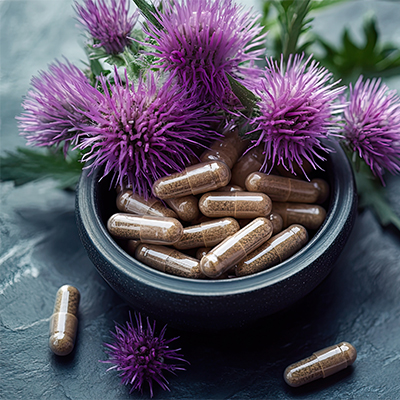
Springtime is liver time! How milk thistle & choline take the strain off your liver
Find out how choline, milk thistle and a conscious diet regenerate your liver and support your metabolism in a natural way.
After months of heavy eating, your liver also needs a break. Choline and milk thistle promote natural detoxification, strengthen the fat metabolism and provide fresh energy for body and mind. Discover how you can make your liver fit for spring with targeted nutrition and vital substances. Scientifically sound and naturally effective.

Iron deficiency? How iron tablets support your vitality
In the cold season, a sufficient iron level is particularly important for energy, blood formation and well-being.
Find out which iron supplements optimally support the body, what you should pay attention to when taking them and how you can specifically prevent iron deficiency. For more strength and vitality in winter!
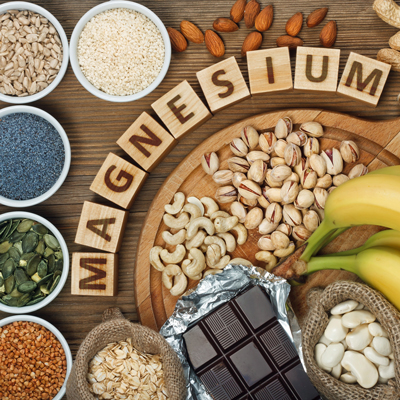
Strengthening the immune system in the cold season. Magnesium as a key mineral
Find out why magnesium is essential for a strong immune system and how you can optimally cover your requirements.
Especially in the cold season, magnesium supports the body's own defenses, ensures normal muscle function and helps to maintain energy. Discover magnesium-rich foods and practical nutrition tips for resilient health in winter!
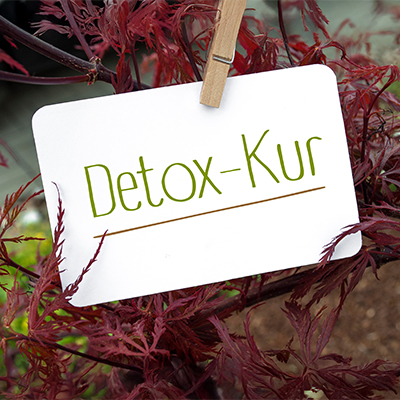
Detox cure with L-arginine: Detoxify & recharge your energy
Find out how L-arginine supports your detoxification, boosts your metabolism and improves your athletic performance.
With a 5-day detox plan, you can cleanse your body in a targeted manner, promote blood circulation and increase your well-being. For more energy and an all-round good feeling!

Goodbye winter skin: Radiant skin with biotin, hyaluronic acid & omega-3
Discover the best nutrients for supple and resilient skin in the cold season.
Biotin promotes skin renewal, hyaluronic acid provides deep moisture and omega-3 strengthens the skin's protective barrier. Find out how you can optimally care for your skin and enjoy the winter with a radiant complexion!

Support hormonal balance in spring naturally with monk's pepper and vitamin B6
For a stable cycle and greater well-being
Spring brings change - also for the hormone balance. Monk's pepper and vitamin B6 can help to alleviate PMS symptoms and regulate the menstrual cycle. Discover natural ways for more balance and well-being!

Radiant skin in spring with zinc and OPC
Support skin renewal and bring back the natural glow
Now that spring is here, your skin needs new energy. Find out how you can improve the appearance of your skin with targeted care, zinc and OPC - for a fresh, radiant complexion in spring. Find out more now!
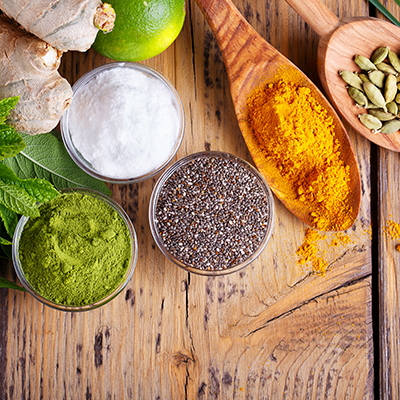
Winter salad with chia: Superfood for the cold season
Discover delicious and nutritious winter salad recipes with chia seeds, turmeric and fresh winter vegetables.
Chia provides valuable omega-3 fatty acids and fiber, while crunchy ingredients ensure enjoyment and variety. Be inspired and enjoy healthy, delicious salads in winter!
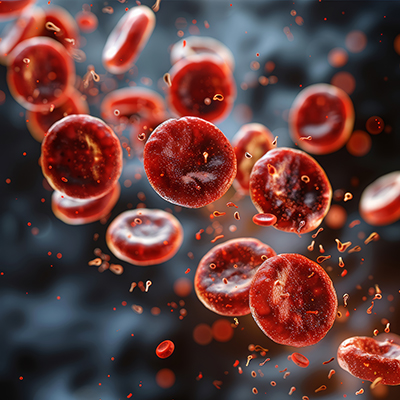
More oxygen, more energy: Iron and vitamin C as a spring turbo
Are you already feeling the spring, but not yet at full power?
Maybe your body is missing just the right combination of iron and vitamin C! Find out why these two nutrients can increase your blood oxygen saturation - and how you can regain your vitality in no time at all. Leave fatigue behind and start the warm season with fresh energy!

Activate metabolism for more energy with L-carnitine & omega-3
How to keep your body active without dieting stress
Spring is calling, and with it comes the desire for more energy and a fit body. L-carnitine and omega-3 fatty acids can gently support your metabolism by boosting fat burning and reducing oxidative stress. Find out why now is the perfect time to give your system a boost!

Support for Picky Eaters
When children's picky eating behavior endangers the nutrient supply
Does your child consistently refuse vegetables and only accepts a handful of foods? Here you can find out what is behind the so-called “picky eater syndrome”, why vitamin C is so essential for children's development and which tricks help to defuse picky eating behavior without pressure.
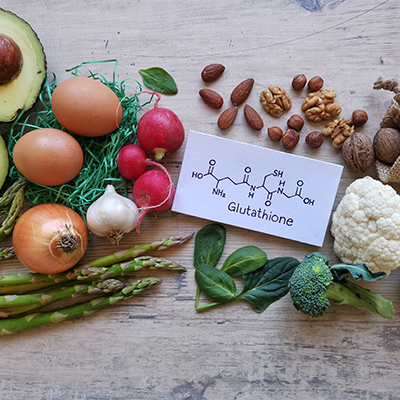
Liver detox with L-glutathione: fresh energy for spring!
Gentle detoxification instead of a crash cure - how L-glutathione supports the liver
The liver filters toxins out of the body and optimally utilizes nutrients. But how can you strengthen it naturally without going on extreme detox cures? Discover here what glutathione has to do with the liver and which simple home remedies can help with “spring cleaning” from the inside.
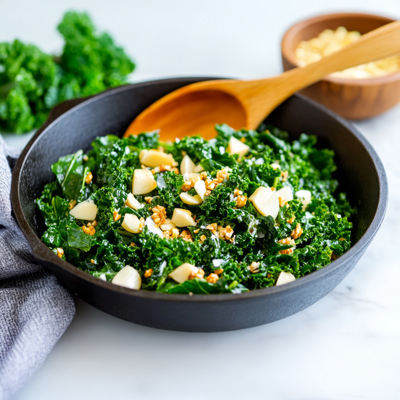
Winter cabbage & iron: Powerful nutrients for the cold season
Find out how winter cabbage, vitamin C and iron-rich foods support your health and provide your body with optimum care.
Winter cabbage provides valuable iron, which is absorbed even better with vitamin C. Discover delicious recipes and nutrition tips to keep you fit and full of energy throughout the winter!

Protection for your mucous membranes with vitamin B3 (niacin)
Cold air outside, dry heating air inside - this can put a strain on mucous membranes
Find out how micronutrients such as niacin (vitamin B3) can help to support the natural barrier function of the mucous membranes and effectively counteract dryness. An adequate supply of vitamin B3 can help to maintain the well-being of your skin and mucous membranes during the cold season.

Sleeping problems in winter? How magnesium supports your sleep!
How magnesium can contribute to a relaxed night
Winter not only brings cold temperatures, but often also restless nights. Many people toss and turn in bed, struggle with muscle tension or wake up tired in the morning despite getting enough sleep. Magnesium is an essential nutrient that plays a role in muscle relaxation and the sleep-wake rhythm. In this article, you will find out which magnesium supplements are suitable for the evening hours and how you can promote a restful night's sleep with simple routines.

More energy in winter: Ashwagandha as natural support
How the adaptogen can help alleviate the winter blues.
The dark season can not only dampen your mood, but also cause persistent tiredness and listlessness. When energy is lacking and exhaustion remains even after a good night's sleep, the right support for body and mind may be lacking. Ashwagandha is a traditional adaptogen that can help promote inner calm and stabilize the sleep-wake cycle. Find out how you can support your well-being in winter with simple measures and a targeted supply of nutrients.

Constant tiredness despite sleep? How vitamin B complex gives you new energy
More energy, better concentration and less fatigue - this is how B vitamins support your body in winter.
Do you know the feeling of waking up completely exhausted in the morning, even though you've actually had enough sleep? Winter fatigue often robs us of energy, especially in the darker months of the year. The good news is that your body can do more than you think - it just needs the right stimuli! Find out how a vitamin B complex can help you reduce fatigue, boost concentration and get through the winter with more energy. Read now how you can specifically support your energy metabolism!
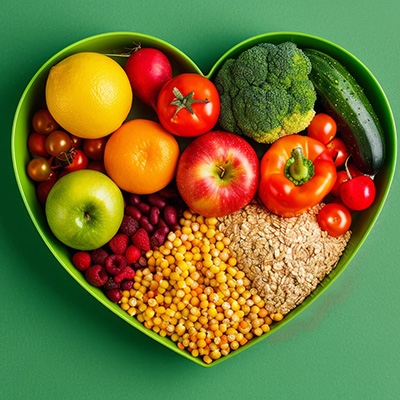
Strengthen your family with a vitamin boost in winter
Little sunlight, fluctuating temperatures and waves of colds challenge the immune system. Find out how you can get through the cold season healthy and full of energy with vitamin C!
Find out which symptoms indicate a vitamin C deficiency, which foods are real vitamin C bombs and how you can easily integrate your daily intake into your everyday life. Whether for parents, children or older people - with the right nutrients, the whole family can stay strong!
Vitamins - essential for our health
Vitamins play a crucial role in our health and well-being. They are essential nutrients that our body needs to function optimally. But what different vitamins are there? Which foods contain them? And what functions do the individual vitamins have? We take a closer look at these and other questions in this article.
The 13 known vitamins
There are a total of 13 known vitamins that are essential for the human body. These can be divided into two main groups: fat-soluble and water-soluble vitamins.
Fat-soluble vitamins
The fat-soluble vitamins include:
- Vitamin A
- Vitamin D
- Vitamin E
- Vitamin K
These vitamins can be stored in the body's fatty tissue and therefore do not need to be taken daily.
Water-soluble vitamins
The water-soluble vitamins include:
- Vitamin C
- B vitamins: B1, B2, B3, B5, B6, B7 (biotin), B9 (folic acid), B12
In contrast to fat-soluble vitamins, these cannot be stored in the body and must be taken in regularly through food.
What is the importance of the individual vitamins for humans?
Each vitamin has specific functions in the body. We will now take a closer look at what these are.
Vitamin A
Vitamin A, also known as retinol, is important for the production of testosterone and sperm cells, making it a significant factor in reproduction. It also promotes healthy bones, teeth and cartilage and is essential for the development and regeneration of the skin. The daily requirement for vitamin A varies according to age and gender, but is generally between 0.8 and 1.1 milligrams in the form of beta-carotene (which is converted to vitamin A in the body).
Vitamin D
Vitamin D is often referred to as the sunshine vitamin, as it is the only vitamin that can be produced by the body itself with the help of sunlight. It is crucial for a positive mood, a strong immune system and healthy bones and muscles. It also contributes to a healthy cardiovascular system. The daily requirement for vitamin D is around 20 micrograms [1].
Vitamin E
Vitamin E acts as a powerful antioxidant with anti-inflammatory properties. It is important for memory, healthy blood vessels and the immune system. Adults should consume between 11 and 15 milligrams of vitamin E daily. [2]
Vitamin K
Vitamin K is primarily known for its importance in blood clotting, where it is involved in the activation of several clotting factors. Vitamin K also has an important influence on bone metabolism. It activates the protein osteocalcin, which is essential for new bone formation and bone remodeling. The daily requirement for vitamin K varies according to age and gender, with good sources being green vegetables for vitamin K1 and animal products for vitamin K2. An adequate supply of vitamin K is particularly important for bone health, especially in older people, to reduce the risk of osteoporosis and bone fractures.
Vitamin C
Vitamin C is known as the all-rounder for the immune system. It not only strengthens the body's own defenses, but also supports the formation of bones and cartilage. Vitamin C also improves the absorption of iron from plant foods and acts as an antioxidant by scavenging free radicals and thus protecting the cells. It also plays a supporting role in wound healing. The average daily requirement of vitamin C is around 100 milligrams, which can easily be met by eating a large orange or 75 grams of currants [3].
B-vitamins
B vitamins are essential for the production of energy from carbohydrates and proteins and support many bodily functions:
- Vitamin B1 (thiamine) is crucial for energy production and supports the nervous system and muscles.
- Vitamin B2 (riboflavin) is known as an energy vitamin and supports the production of energy from fat, protein and carbohydrates as well as the burning of fat.
- Vitamin B3 (niacin) promotes energy production, has a positive effect on thinking and memory and can help to reduce tiredness.
- Vitamin B5 (pantothenic acid) is an important component of the coenzyme CoA and is required for the breakdown of carbohydrates, fats and amino acids.
- Vitamin B6 (pyridoxine) contributes to normal energy, protein and glycogen metabolism and supports normal nerve function.
- Vitamin B7 (biotin) is involved as a coenzyme in the conversion of nutrients into energy and ensures a functioning protein and fat metabolism.
- Vitamin B9 (folic acid) is important for athletes as it contributes to the normal functioning of the metabolism of various nutrients.
- Vitamin B12 plays an important role in the formation of red blood cells, the function of nerve cells and cell division and also has an influence on our psyche.
What is the daily vitamin requirement?
There is no general answer to the question of which vitamins you should take every day. Individual requirements depend on various factors such as age, gender, lifestyle and state of health.
A healthy, varied diet with plenty of fresh fruit, vegetables, wholegrain products, lean meat and fish generally provides all the vitamins you need. Experts recommend:
- Three portions of vegetables and two portions of fruit daily
- Regular consumption of wholemeal and dairy products
- Spend time outdoors to stimulate the body's own vitamin D production
Special situations and risk groups
In special situations and for risk groups, additional vitamin supplementation may be necessary:
- With a vegetarian or vegan diet, for example, it is important to pay particular attention to the supply of vitamin B12, as this is mainly found in animal products.
- Pregnant and breastfeeding women have an increased need for folic acid to prevent developmental disorders in the fetus.
- Additional intake may also be necessary in the case of certain illnesses that impair vitamin absorption.
- Targeted vitamin supplementation can also be important for competitive athletes. Intensive physical exertion and an increased metabolism increase the need for certain vitamins, especially the water-soluble B vitamins and vitamin C. These vitamins are increasingly lost through sweat and urine. These vitamins are increasingly lost through sweat and urine. Supplementation may also be advisable for athletes who have a high carbohydrate diet with a low micronutrient density or who exclude certain food groups.
In allen Fällen ist eine ärztliche Beratung ratsam, wenn Sie Nahrungsergänzungsmittel wie einem Vitamin-B-Komplex, Multivitamin oder anderen Vitamine von A-Z einnehmen möchten, weil ein Arzt Ihren individuellen Bedarf ermitteln kann. Das gilt insbesondere dann, wenn die Einnahme hochdosiert erfolgen soll.
The role of vitamins for the metabolism
Vitamins play a crucial role in metabolism and are essential for many vital functions of the body. They are not only involved in numerous metabolic reactions and regulate the utilization of carbohydrates, proteins and minerals, but also act as cofactors for enzymes that are responsible for the build-up and breakdown of substances in the body.
B vitamins are particularly important for energy metabolism: vitamin B2 (riboflavin) triggers energy production from carbohydrates and fat. Vitamin B6, on the other hand, is involved in muscle building and the conversion of amino acids.
Vitamin C supports fat burning by promoting the production of noradrenaline and carnitine. Vitamins also influence the hormone balance, such as the production of thyroid hormones, which regulate the metabolism [4]. Last but not least, they support the immune system and are important for the formation of cells, blood cells, bones and teeth as well as for the function of enzymes that ensure a smooth metabolism in the cells.
Vitamin-rich foods: natural sources for your health
To provide your body with an optimal supply of vitamins, you should eat a varied and balanced diet. The following foods are particularly helpful here:
- Vitamin A: carrots, sweet potatoes, spinach, mangoes
- Vitamin D: Fatty fish (e.g. salmon, mackerel), egg yolk, mushrooms
- Vitamin E: Nuts and seeds, vegetable oils (especially wheat germ oil), avocados
- Vitamin K: kale, spinach, broccoli, Brussels sprouts, parsley, rocket, chives, chickpeas, lentils, rapeseed oil
- Vitamin C: citrus fruits, peppers, broccoli, acerola cherries
- B vitamins: Whole grain products, legumes, meat and fish, eggs, dairy products
Vitamins and the immune system: a strong team
Vitamins help to strengthen and maintain our body's own defenses. Vitamin C is particularly important here. It not only supports the function of white blood cells, our immune cells, but also acts as a potent antioxidant that protects our cells from harmful free radicals [5].
Vitamin D has proven to be an important modulator of the immune response. Studies show that an adequate supply of vitamin D can reduce the risk of infections. This underlines the importance of adequate vitamin D intake, especially in regions or seasons with little sunshine.
Vitamin E also makes an important contribution to immune defense. As a powerful antioxidant, it protects our cells from oxidative stress and thus supports the body's general resistance to pathogens.
Vitamin A is also important for our mucous membranes.
Vitamins in combination
Vitamins should not be considered in isolation, as they often only develop their full effect in combination with other nutrients. One of the best known and most important interactions is between vitamin D and calcium. Vitamin D plays a crucial role in the absorption of calcium in the intestine and is therefore essential for keeping our bones healthy. Without sufficient vitamin D, the body would not be able to optimally utilize the calcium it absorbs, which could lead to reduced bone density in the long term.
Vitamin C and iron also work well together. Vitamin C significantly improves the absorption of iron, especially from plant sources. This is particularly important for vegetarians and vegans, but also for anyone else who wants to optimize their iron intake.
Vitamin E and omega-3 fatty acids also work best together. Omega-3 fatty acids are known for their numerous health benefits, but are also very sensitive to oxidation. This is where vitamin E comes into play: as a powerful antioxidant, it protects the valuable omega-3 fatty acids from oxidative damage and thus maintains their effectiveness. This combination is particularly relevant for heart health and the function of the nervous system [6].
Trace elements such as zinc and selenium also work closely with vitamins to fulfill various important functions in the body.
Special vitamin requirements at different stages of life
Vitamin requirements can change depending on the phase and situation of life:
Pregnancy and breastfeeding
The need for many vitamins is increased during pregnancy and breastfeeding. These are particularly important:
- Folic acid: to prevent neural tube defects in the unborn child
- Vitamin D: for the development of the baby's bones
- Vitamin B12: for the development of the nervous system
Childhood and youth
- Vitamin D: for healthy bones
- Vitamin A: for growth and development
- B vitamins: for energy and the nervous system
Seniors
In old age, the need for certain vitamins can increase, while absorption is often more difficult:
- Vitamin D: for the prevention of osteoporosis
- Vitamin B12: as absorption is often impaired in old age
- Antioxidants (vitamin C, E): to protect against age-related diseases
How can I recognize a vitamin deficiency?
Vitamin deficiency can manifest itself through various symptoms and should be taken seriously. Common signs include persistent tiredness, increased susceptibility to infections, problems with skin and hair and difficulty concentrating. However, these symptoms can also have other causes, which is why a visit to the doctor is advisable if a vitamin deficiency is suspected. The vitamin status can be determined precisely by means of specific blood tests. A balanced and varied diet is the key to preventing a vitamin deficiency.
Vitamins and disease prevention
Vitamins play an important role in the prevention of various diseases:
- Cardiovascular diseases: Vitamins C and E as antioxidants can reduce the risk
- Osteoporosis: Vitamin D and K are important for bone health
- Cancer: Antioxidants such as vitamin C, E and beta-carotene may be able to reduce the risk of certain types of cancer. However, experts are skeptical about this [7].
- Eye diseases: Vitamin A is essential for eyesight.
Vitamins are little helpers with a big effect
Vitamins are essential nutrients that play a central role in our health and well-being. They support numerous bodily functions, strengthen our immune system and our nerves and help us to remain efficient and vital.
Food supplements (in capsule, tablet or powder form) can be useful in certain situations. But remember: they are never a substitute for a healthy lifestyle and diet.
Sources
[1] https://www.rki.de/SharedDocs/FAQ/Vitamin_D/Vitamin_D_FAQ-Liste.html
[2] https://www.aok.de/pk/magazin/ernaehrung/vitamine/vitamine-wichtig-fuer-das-immunsystem-und-die-abwehrkraefte/
[3] https://www.aok.de/pk/magazin/ernaehrung/vitamine/vitamin-c-wie-viel-brauchen-wir/
[4] https://www.schilddruesenpraxis.at/spurenelemente-schilddruese.html
[5] https://pubmed.ncbi.nlm.nih.gov/29099763/
[6] https://pubmed.ncbi.nlm.nih.gov/33445534/
[7] https://www.krebsgesellschaft.de/onko-internetportal/basis-informationen-krebs/bewusst-leben/basis-informationen-krebs-bewusst-leben-ernaehrung/mit-vitaminen-kre.html
